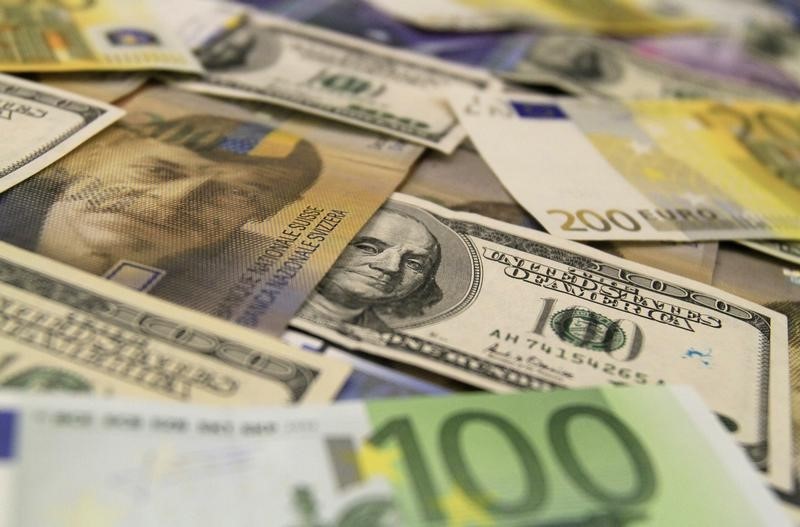By Geoffrey Smith
Investing.com -- The dollar edged lower in early Friday dealings in Europe but remained well supported after another sharp selloff in U.S. equities on Wednesday damped risk appetite around the world.
By 3 AM ET (0800 GMT), the dollar index, which tracks the greenback against a basket of advanced economy currencies, was down 0.1% at 95.67, but was still on course for a gain of around 0.5% over a week that has been dominated by fears of inflation, higher interest rates and, latterly, signs of a soft patch for the U.S. economy due to the Omicron variant of Covid-19.
Initial jobless claims surged to their highest level in three months last week, while earnings disappointments from the banking sector and, on Thursday, Netflix (NASDAQ:NFLX) have cast doubt on the prevailing growth narrative of the last couple of years.
Geopolitical concerns are also keeping risk appetite limited, with U.S. President Joe Biden warning on Wednesday that he expects Russia to invade neighboring Ukraine again. Secretary of State Anthony Blinken meets with his Russian counterpart Sergey Lavrov for talks later Friday to defuse the situation. The Russian ruble was unchanged at 76.64 to the dollar but is down over 3.5% this week.
The European day got off to a gloomy start, as the U.K. recorded a sharp drop in both retail sales and consumer confidence, amidst surging Covid cases and household energy costs. The GfK confidence index fell to its lowest level since February while retail sales fell 3.7% on the month in December. November's figures were also revised down.
Analysts said the figures likely reflected a change in spending patterns due to the pandemic, with consumers having completed their Christmas shopping earlier than usual due to fears of product shortages. October's sales had been exceptionally strong.
"Total consumer spending may not decline this year, given high savings levels and room for some further catch-up in certain services categories," said ING economist James Smith in a note to clients. "But retail looks more vulnerable, particularly after two years of above-average spending on goods. The latest fall in consumer confidence is a potential warning sign."
The pound fell 0.2% to $1.3565 and was also down 0.4% against the euro in response. The euro, meanwhile, was up 0.2% at $1.1362, having lost 1.5 cents against the dollar in the last week as the gap between ECB policy and that of the Federal Reserve widens. ECB President Christine Lagarde again pushed back against calls for an early rise in interest rates in a keynote speech on Thursday, despite headline inflation running over 5% in the Eurozone, its highest since the creation of the single European currency.
